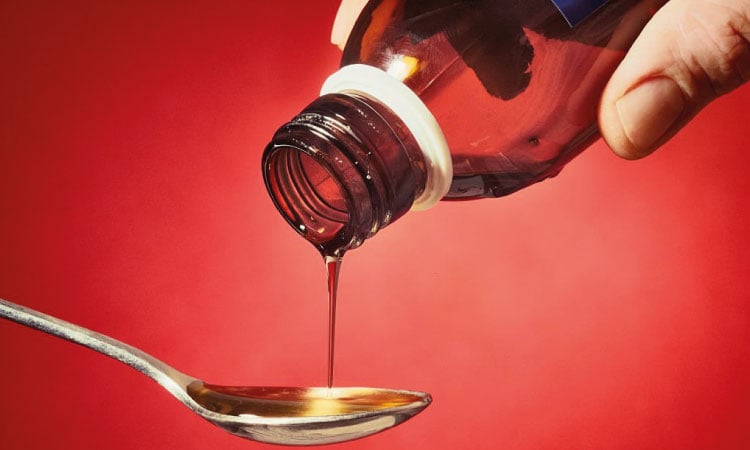There is no such thing as an easy pregnancy for everyone, and it’s certainly not a cakewalk. Some women are able to become pregnant as soon as they stop using birth control, while others will try for months or even years before becoming pregnant. Given how much work it takes to get pregnant, it’s no surprise that many women will do anything to increase their chances.
Drinking cough syrup is a popular at-home fertility treatment that many women experiment with while they are TTC (Trying To Conceive). Can cough syrup help you get pregnant? Before you try it out, make sure you have a solid understanding of the theory that underpins it and the various factors that should be taken into account.
Having decided to have a child, you and your partner will not want to wait any longer for that moment to arrive. If you are having problems with your fertility, there are medical treatments and surgical procedures that you can receive. However, many of these treatments and procedures are expensive and take a significant amount of time.
The Theory Behind Opting For Cough Syrup To Conceive Fast
The theory behind the popular belief that cough syrup helps you conceive rests on the fact that there is an active ingredient in cough mixtures. Guaifenesin, an expectorant, is the active ingredient in the majority of cough syrups.
Guaifenesin works by loosening up the mucus in the lungs and throat, which makes it easier to cough up phlegm. This also thins the mucus in your airways, which makes it easier for you to breathe. Guaifenesin has an effect on the mucous membranes throughout your body, including those that produce cervical mucus, causing it to become more wet and thin.
It is possible that your partner’s sperm will not be able to reach your cervix if you do not produce a sufficient amount of mucus that is wet and slippery around the time that you ovulate. This makes it difficult to get pregnant. When it comes to situations like these, cough medicine can be helpful. Because the cough syrup causes the cervical mucus to become looser and thinner, the sperm will have an easier time reaching the egg.
Calculate Due Date With Conception Date
Related Reading: 9 Signs Of Ovulation To Know Your Most Fertile Time
What Research Says

A possible role for guaifenesin in fertility has been examined in two separate studies1.
A study involving female participants2
There were about 40 couples who took part in the study, and the women were all thought to be suffering from infertility due to “hostile cervical mucus.”
The researchers advised the women to continue their attempts to conceive while they took guaifenesin and monitored any changes in the quantity or quality of cervical mucus produced by the women over a period of six months. The quality of the mucus produced by 57% of the women showed a “marked improvement,” and 65% of the women became pregnant during the course of the study.
Limitation of this study
A control group was not included in the research on fertility treatment, which is a crucial component for determining whether or not guaifenesin, found in cough medicine, is effective in enhancing fertility. Now, what exactly does “control group” mean? In experiments, the control group serves as a basis for comparisons.
In this scenario, the couples who had been diagnosed with hostile cervical mucus infertility but had not been given guaifenesin treatment would make up the control group. The absence of a control group is a major flaw in this study. Since there is no control group, we cannot compare pregnancy rates or changes in the fertile cervical fluid between women treated with cough syrup and those not treated with cough syrup.
There is thus no way of knowing how many women who took cough syrup containing guaifenesin had a higher pregnancy rate than women who did not take these drugs. Cervical mucus changes in this study are encouraging. Still, they do not guarantee an increase in the number of pregnancies.
A study conducted on man3
An infertility evaluation was performed on a 32-year-old man. After a year and a half of having sexual relations without protection, he and his wife said they were unable to conceive. An examination of the semen was carried out, which consisted of a count of the spermatozoa as well as their morphology, viscosity, volume, liquefaction, motility, etc. After a preliminary analysis, it was discovered that the sperm count and motility were low. The medical professional initiated guaifenesin therapy. The semen analysis was repeated two months after guaifenesin therapy, and both total sperm count and motility showed significant improvement.
Limitation of this study
This is a single case study, and to our knowledge, there have been no other published case studies or clinical trials investigating the efficacy of guaifenesin for the treatment of male-factor infertility. Before we can determine whether or not guaifenesin is effective for treating male-factor infertility, additional research into the topic is required.
Related Reading: Garlic And Fertility – How To Use The Herb For Best Results
Can Cough Syrup Help You Get Pregnant?
It’s hard to believe, but cough syrup could actually improve your chances of getting pregnant by stimulating your body to produce more cervical mucus. However, in order for it to be completely efficient, you should only consume it close to the time that you ovulate, and you shouldn’t consume more than the recommended amount.
If you get pregnant after using an at-home fertility trick, it can be difficult to tell if the pregnancy was just a coincidence or if the trick had any effect at all. Despite this, studies have shown that guaifenesin aids pregnancy by facilitating the passage of sperm into the uterus.
Cough Syrup When TTC: When to Take It?

Taking guaifenesin-containing cough syrup around ovulation will thin your cervical mucus and help with pregnancy attempts. It is possible to pinpoint the exact time of ovulation by keeping track of your basal body temperature and utilizing an ovulation test kit, both of which are stocked in local pharmacies. Once you have determined the time of your ovulation, you can take the cough syrup around that time to assist in increasing your chances of becoming pregnant. In most cases, a safe dose is considered to be two teaspoons, three times per day. However, your physician is the one who will assist you in determining the appropriate dosage.
Considerations Before Using Cough Syrup While TTC
Here are a few things to consider before taking cough syrup while trying to get pregnant:
- Self-prescription is not a good idea. Before using cough syrup to try to conceive, always check with your doctor
- Check the list of ingredients before purchasing any cough syrup for the purpose of getting pregnant. It is not the cough syrup itself but rather a specific component that is found in the majority of cough medicines that raises a woman’s probability of becoming pregnant. Therefore, before using your cough syrup, make sure you are familiar with its constituents and check to see if guaifenesin is included in the list of active ingredients. Rather than loosening the mucus, many cough syrups are designed to dry it out. If you consume products of this kind, then you are actually lowering your chances of pregnancy
- If you do decide to take cough syrup, check the label to make sure it does not contain antihistamines. These medications can cause the mucus in the cervix to dry out, making it more difficult for a woman to become pregnant
- Never exceed the recommended dosage of any medication, whether it is over-the-counter or prescribed. When trying to conceive, many women find themselves needing to “chug” cough syrup in order to get pregnant
- As with any medication, excessive use or overdose of cough syrup can result in unwanted side effects
Related Reading: Fertility Tests To Take Before Trying To Get Pregnant
How To Determine Whether Or Not The Mucus In Your Cervix Is Dry Or Wet?
You will need to go through a series of post-coital fertility tests in order to find out whether or not the mucus in your cervix is dry or wet. After you have sexual activity with your partner, a doctor will examine some samples of the mucus that is produced in your cervical region.
If you are having trouble getting pregnant and your doctor has determined that it is due to the mucus in your cervix being thick and dry, taking guaifenesin cough syrup may be able to assist you in achieving your goal of becoming pregnant.
You also have the option of conducting the inspection on your own by using your fingers. Take a tissue and wipe away some of the cervical mucus. To perform a finger test, gently lift the mucus away from the tissue and examine it in the space between your finger and thumb. Cervical mucus should be evaluated for its color, appearance, and consistency.
- The dry period occurs when there is not much in the tissue
- Intermediate fertility can be expected if the mucus is thick, creamy, white, yellowish, not stretchy/elastic, and sticky
- High fertility can be expected if the mucus is transparent, like raw egg white, stretchy/elastic, liquid, and watery
Conclusion

Given the high cost of in vitro fertilization (IVF), it’s no wonder that a low-cost alternative has piqued the interest of so many women for over two decades. Before beginning treatment with guaifenesin, it is important to discuss the possibility of pregnancy with your attending physician. Because of the possibility that you could become pregnant (or maybe already pregnant as you’ve been trying to conceive for a while), it is recommended that you avoid taking any medications unless it is absolutely necessary.

